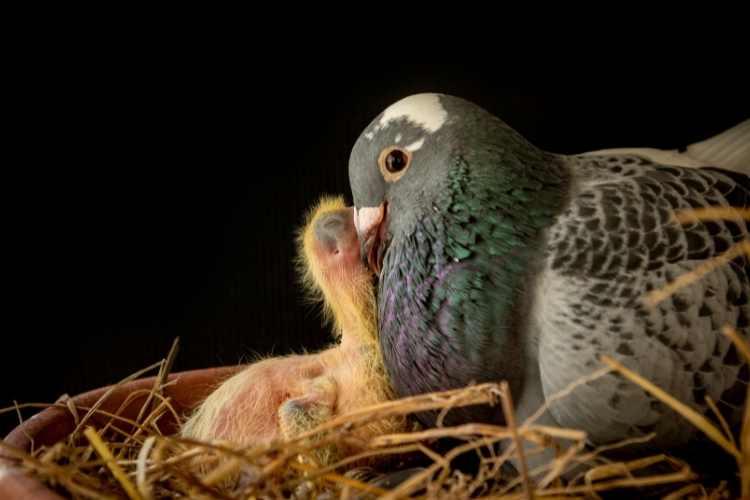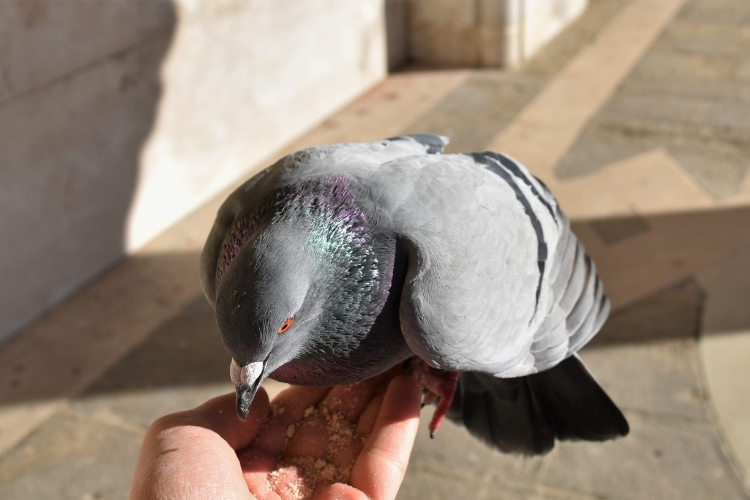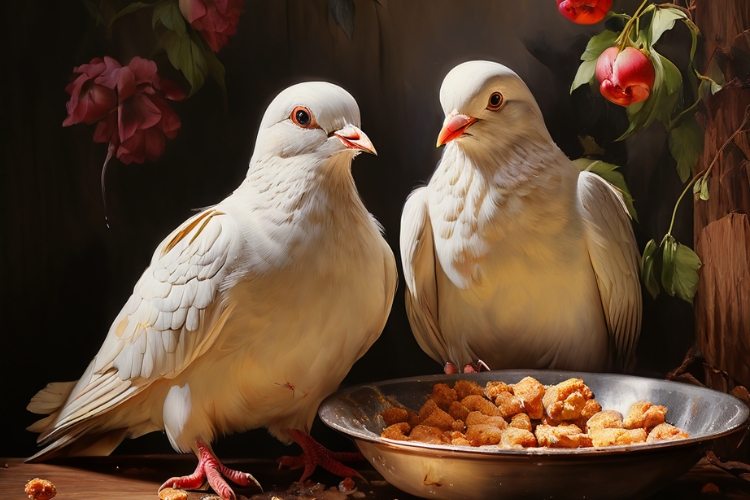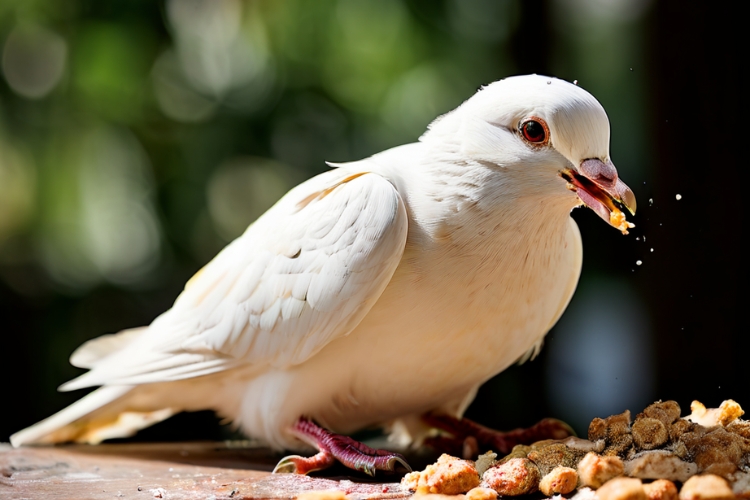Keeping pet doves can be a rewarding experience. With their pleasant coos, gentle nature, and relatively compact size, doves make great pets for people living in apartments or smaller homes.
However, like any pet, doves have ongoing care costs including food, treats and supplements that responsible owners need to factor into the decision to get a dove.
In this blog post guide, we will provide a detailed overview of typical feeding costs so potential dove owners know what to budget for their bird’s nutrition and healthcare.
Staple Dove Food Costs
A dove’s staple diet consists primarily of good-quality bird seed mixes for nutritional balance. Common seeds used in dove feed mixes include millet, wheat, corn, peas, oats, safflower and nyjer.
Expect to pay anywhere from $8 to $30 for a standard 10-12 lb bag of dove seed mix from pet stores or online dove food suppliers. Seed mix prices vary widely based on the brand, specific seed ingredients, and whether the mix is organic.
When estimating costs, base staple food calculations on each dove consuming approximately 1-2 tablespoons of seeds per day. A typical pet dove will eat 1⁄4 to 1⁄2 cup of seeds weekly. With average seed mix prices, this equates to $1.50 – $3 per dove for food each month. Larger breeds that eat more will have higher monthly food bills.
It’s economical to buy larger bags of dove seed mix if you have multiple birds or an aviary collection. Purchasing 20-25 lb bags saves money over time with bulk pricing.
Just be mindful of the expiration date on the bag to ensure freshness. Only pour small quantities into doves’ feed dishes to prevent waste from stale, uneaten seeds.
Supplemental Dove Food Costs
In addition to bird seed, domesticated doves benefit from supplemental foods for a nutritious diet:
1. Fruit and Vegetables
Fresh produce like kale, spinach, broccoli, peas, squash and berries provide healthy vitamins, minerals and moisture for digging birds. Chop produce into bite-size pieces. Offer tidbits daily, budgeting around $5-10 monthly for 1-2 doves.
2. Grit and Calcium
These aids support digestive health and egg production. Prices typically range from $3-7 for packages lasting 2-6 months.
3. Dove Pellets or Crumbles
Specially formulated pellets or crumbles guarantee balanced nutrition unlike an all-seed diet. Expect to pay $8-25 for 5-20 lb bags providing 1-2 month’s feedings (longer for fewer birds).
Of course, costs rise for more doves or large aviaries. But mixing feed varieties creates an enriched diet for pets at reasonable monthly expenses.
4. Treat Costs
Doves relish special treats! While not daily necessaries, small amounts of healthy snacks are beloved bonding opportunities and stimuli. Budget $5-10 monthly for treats like:
Dove Candy/Nutriberries – $6-10 per 8-16 oz bag
Dove Cookies – $4-8 per 5-8 oz box
Millet Sprays – $4-8 per 1⁄2-1 lb bag
Mealworms – $8-12 per 500-1000 count container
Chopped Fruit/Vegetables – $3-5 per month
5. Supplement Costs
Regular use of supplements helps prevent nutrient deficiencies for vitality and feather health. Two commonly used products are:
Calcium + Vitamin D3 – $8-15 for 12-100 count vials for 1+ years
Probiotics – $15-25 for 25-100 gram jars lasting 1-3 months
Other options like vitamins, electrolytes and grooming supplements average $10-30 for multi-month supplies. Budgeting $10-30 monthly covers supplement staples for 1-3 doves depending on needed products.
Special Needs Diet Costs
Sometimes doves develop health conditions requiring specialized feeds or supplements for treatment. Two examples include:
- Egg Binding/Calcium Deficiency – Extra calcium+D3, breeding supplements, pellets with higher calcium levels and vet exams/treatment to resolve the underlying condition. $20-100+ until the dove fully recovers.
- Overgrown Beaks/Feet – Veterinarian trimming plus conditioning pellets and mineral blocks to help wear beaks/nails naturally. Budget $20-50+ initial vet fees plus $5-15 monthly for specialty food/supplements.
Total Monthly Costs
Based on the feeding breakdown above, plan to spend $25-60 monthly to feed one average-sized pet dove a nutritious diet including staple seeds, supplemental foods, occasional treats and standard supplements. Allow $15-25 more per additional dove owned.
Of course, totals can run higher depending on dove size, health conditions, food brands purchased and your own feeding preferences for quality or organic varieties. However, the estimates provide an approximate baseline for budgeting costs to feed pet doves.
Saving Money On Dove Diets
For dove owners looking to trim expenses, consider these money-saving tips:
- Buy large bags of standard seed mixes. The bulk savings really add up over time.
- Shop sales when restocking pricier pellets, supplements and treats. Sign up for loyalty programs for additional discounts.
- Sprout seeds and grow produce for free dove snacks during the summer.
- Purchase lower-cost supplemental mix-ins like flax and oyster shell offered in bulk bins.
- Check rebate apps for any applicable cash back offers when shopping for pet food and supplies.
Without sacrificing nutrition, following one or more of these options makes achieving budget-friendly dove diets quite feasible. Choosing affordable base ingredients leaves more to invest on higher quality birdseed, pellets and vitamin supplements for supporting dove health long-term too.
Conclusion
Providing well for theRM essential nutritional needs as pets does entail certain costs for dove owners. But focusing expenditures on quality staple seed mixes, supplemental variety, plus vital calcium and vitamins does not have to break the bank. With some selective buying, deal hunting, and homemade snacks, most can arrive at a monthly dove food budget that reasonably fits within $25-60 per bird.
For those wondering if owning doves as pets makes financial sense for their situation, use these feeding cost details to make informed planning. Now that starter estimates for diet expenses are clear, figuring out if room exists in one’s personal budget is much simpler before making the commitment to house doves.
Their relatively modest food bills help make pet doves one of the more pocket-friendly exotic bird options available for animal lovers seeking a new feathered friend.




